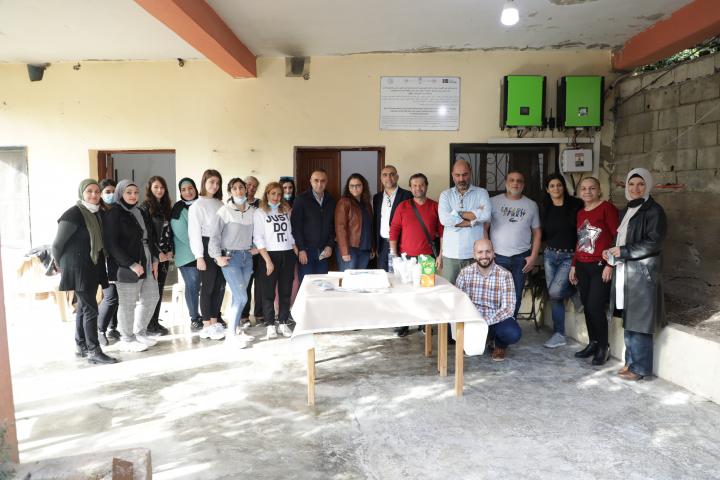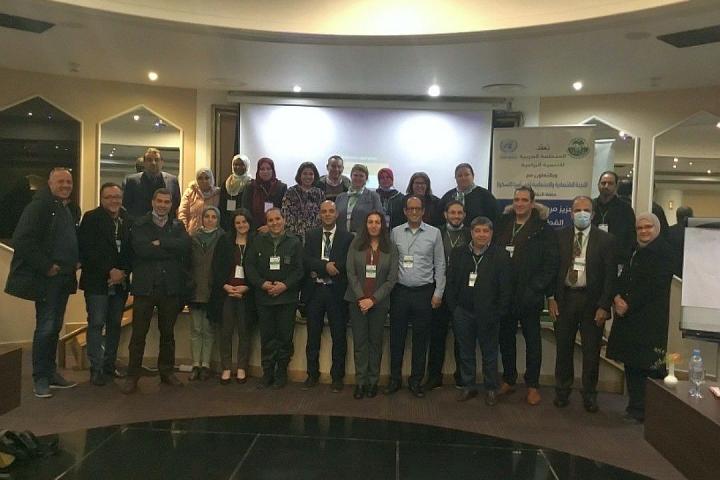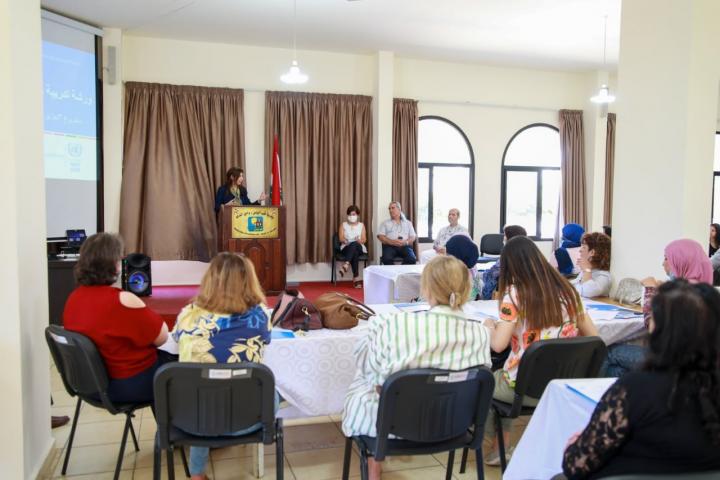Director of ESCWA Sustainable Development and Productivity Division Roula Majdalani today said that much can be done to increase energy efficiency in most Arab countries, which, in coming years, will suffer from the dangers of falling short of meeting the increased demand for power that will rise by 115 percent during the years 2011-2020. Majdalani was speaking at the opening of the Ninth Session of ESCWA‘s Committee on Energy at the Regency Hotel, Kuwait. The Committee concludes tomorrow Thursday, and is attended by specialized representatives of ESCWA Member States. Majdalani emphasized the importance of the energy sector for the United Nations. She noted that UN Secretary-General Ban Ki-moon has launched an initiative entitled “Sustainable Energy for All” in September 2011, which includes three objectives to be realized by 2030: firstly, stabilize climate change and ensure universal access to modern energy services; secondly, double the global rate of improvement in energy efficiency, and thirdly, double the share of renewable energy in the global energy mix. “As such, we are working within these directives, with a focus on our region-specific priorities. It cannot be overlooked that 70 percent of the Sudanese population and 50 percent of the Yemeni population are left without electricity to this day,” Majdalani said. “Evidently, climate change is a comprehensive and ongoing crisis that gives reason to worry, especially in our region, where dangers of desertification, water scarcity, and warming. Fighting climate change requires urgent and ambitious work that respects the principles and provisions of the Framework Convention on Climate Change. However, we assert that even though the responsibility is shared, it is certainly differentiated. Developed countries that were essential protagonists in the accumulation of emissions in space since the industrial revolution, should fulfill their duty in supporting developing countries, of which Arab countries are part,” Majdalani noted. She concluded by saying that achieving aforementioned directions and objectives requires laying the grounds for good governance, creating a supportive environment that is stable on the political, security, social and legislative fronts, and an investment-friendly atmosphere that boosts public-private partnerships.” The Ninth Session of ESCWA Committee on Energy was preceded yesterday by a workshop on Oil and Gas Pricing Parameters Influencing Energy Efficiency and Renewable Energy Activities, held at the Kuwait Institute for Scientific Research (KISR). The workshop aimed at exchanging ideas and opinions, and exploring visions and latest developments in this regard. Committee on Energy The ninth session of the Committee on Energy is tackling the progress achieved in the field of Energy in the ESCWA member countries; the projects achieved and those planned to be implemented in member countries; the adoption and implementation of renewable energy technologies in member countries; and the country papers on programmes and achievements of member countries in the field of Energy. The Session is also discussing the outcomes of international and regional meetings in the field of Energy, and especially those of the UN Conference on Sustainable Development (Rio+20), and the Intergovernmental Consultative Meeting on the Water-Energy Nexus in ESCWA Member Countries. The ESCWA Committee on Energy was established pursuant to resolution 204 (D-18) dated 25 May 1995 endorsed by the UN Economic and Social Council in its resolution 1995/25 dated 24 July 1995, and in view of the crucial role played by the energy sector in supporting the programs of social and economic development in ESCWA Member States, and in light of the diversity of energy resources in these states that are not limited to oil and gas. Thus a close regional cooperation is needed to strengthen the capabilities of Member States for developing the use of renewable sources of energy through coordinating activities in the field of Energy and their impact on the environment, and particularly on climate change, and the bases of sustainable development. The ESCWA Committee on Energy convenes its meetings every two years. It is made up of representatives of ESCWA Member States specialized in the field of Energy. It undertakes the following tasks: participating in the establishment and formulation of priorities for programmes of work and medium-term plans in the field of Energy; monitoring the developments in the field of Energy in ESCWA Member States; monitoring the progress achieved in the activities of the ESCWA secretariat in the field of Energy; and following up on international and regional conferences and the participation of Member States in them, and coordinating Member States’ efforts in connection with the implementation of resolutions and recommendations. * *** *
- الرئيسية
- Ninth Session of ESCWA Committee On Energy Opens
الأمانة التنفيذية
اللجنة الوزارية
مجموعاتنا المتخصصة
نتعاون
الموارد
موارد رئيسية
تحديث
للاتصال



